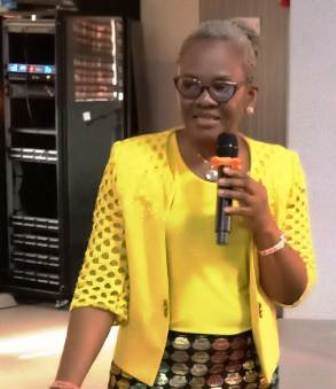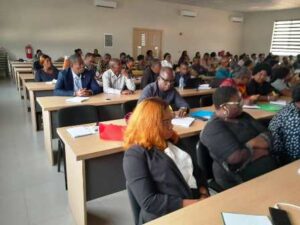-
Validates new policy
In continuation of its health sector reform, Edo State government has concluded the validation of fresh health care delivery policies that will define the standard of practice in all areas of the sector while also establishing a regulatory system in the state.
Policy documents reviewed covered specific disciplines including Medical Services, Pharmacy, Nursing Services, Mortuary services, Medical Laboratory services, Diagnostics, Optometry among others
The two-day validation which was conducted by senior civil servants in the ministry of health, health care professionals and elders in both private and public health establishments was organized by the state Ministry of Health in partnership with PharmAccess, an international technical assistance organization that works with some sub-Saharan African countries towards providing access to affordable and quality healthcare.
Welcoming participants to the workshop held at the state’s new Secretariat complex, the Commissioner of Health, Professor Obehi Akoria said the ministry is prioritizing health care regulation “because we know that service delivery, healthcare financing and training institutions of our dream will only deliver in line with our goals and aspirations if there is appropriate regulation.”
She told the participants that the ministry has clearly delineated the roles of every stakeholder in the state’s transformation agenda.
“The role of regulators, policy Makers, providing quality assurance, quality control monitoring and evaluations, oversight of training institutions and capacity development is in the purview of the ministry of health.
“The role of Service Providers and ensuring access to health care is in the purview of hospital management Agency for secondary Care; the Edo State Primary Health Care development Agency for Primary Health Care while the Traditional Medicine Board is for complementary and alternative medicine.”
She pledged that the ministry and all the professional groups in the sector would work together to regain the confidence of Edo state residents in the new healthcare system by prioritizing regulation and monitoring, by making quality healthcare accessible to all.
“We are talking about timeliness, safety, efficiency, equitable healthcare and all of us leaders in healthcare will make a commitment to drive these across the state in out different spheres of influence,” she further said.
In his presentation titled “ Healthcare Regulation: Introducing a Paradigm Shift” the director of regulation and Monitoring, Dr. Stanley Ehiarimwian told participants that the goal of his directorate is to ensure that qualified health personnel operate in the state, providing the best of care to clients within acceptable standards enshrined in the relevant laws and guidelines.
He listed some challenges currently facing the directorate which include: Obsolete laws and guidelines requiring abolition, revision or formulation, inadequate staff strength to effectively regulate and monitor activities in the health facilities across the state; some moribund professional monitoring committees needing reactivation; inadequate infrastructure such as ICT equipment, among others.
“The Directorate of regulation and monitoring is poised for action and needs the commitment of all relevant government ministries, departments and agencies, registration councils of professional bodies and professional health associations,” he said
Dr. Ehiarimwian however admitted that the directorate would not be able to carry out the task alone, saying other institutions such as the Civil Society organisations, security agencies, religious groups, traditional institutions, the media and academia would all be expected to join the Ministry to stamp out quackery and ensure standards in all areas of health care delivery in the state.
He urged stakeholders to avoid using professional camaraderie to whittle down standards adding that no one should feel targeted or being witch-hunted.
“Effective healthcare regulation is pivotal in achieving improved healthcare services and outcomes in Edo state. The Directorate of Regulation and Monitoring will require an advocate for the corporation during the moratorium but after this comes enforcement,“ he said.
The Program Director SafeCare, PharmAccess Foundation Nigeria, Dr. Ibironke Dada, in her presentation, disclosed that PharmAcess decided to partner with the state to assist the government in achieving its health improvement programme goals by strengthening regulatory capacity and improve the quality of healthcare services provided in the state.
According to her, the objective of the partnership is to establish an effective and efficient healthcare regulatory system; define standard for licensing health facilities; license Edo state to use the safecare methodology across all public healthcare facilities; strengthen the capacity of the ministry and healthcare providers to institutionalize quality improvement systems and also conduct service availability mapping, including geophysical location.
Dr. Dada told the participants that PharmAccess is currently supporting several other states in Nigeria to assist in providing easy access to quality health care.
“We are passionate about improving the quality of health in Nigeria. I live in Nigeria and I do a lot of work outside Lagos. I want to believe if something happens to me in another state I should be able to find at least one hospital that will be able to take care of me,” Dr. Dada said.


